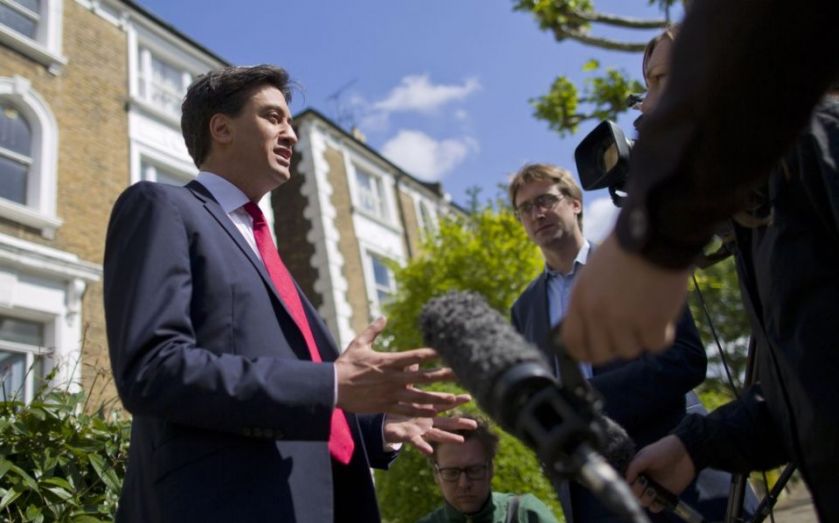Miliband’s disappointing stamp duty pledge won’t make the tax less stupid

Housing, and its affordability crisis, is a bigger issue at this election than in any other for decades. Sadly, that hasn’t translated into policies that could effectively solve the problem, and yesterday’s announcements by Labour leader Ed Miliband will not change that.
Labour plans to introduce a three-year stamp duty exemption for first time buyers, providing the property bought costs no more than £300,000. It will also increase the stamp duty rate by “at least 3 per cent” for buyers who are not EU residents. While these policies appear to be useful, in practice the benefits of the tax cut crumble away with its inherent design flaws.
Stamp duty is a damaging and illogical tax. Until last year’s reforms removed its “slab” structure (where the amount paid was calculated on the entire purchase price of the property, not just the amounts over the relevant thresholds), stamp duty was also a very stupid tax. So it is disappointing that Miliband’s speech implies that the temporary exemption for first time buyers will reintroduce a slab at £300,000. A first time buyer purchasing a property worth £300,001 would pay substantial amounts in Stamp Duty, while a £300,000 house would incur nothing.
More concerning is the fact that the proposed reforms are unlikely to achieve their stated aim: to improve affordability for first time buyers. Since the responsiveness of housing supply to demand is so weak in the UK, any given increase in demand will overwhelmingly manifest itself in higher prices rather than increased construction, with the benefit flowing to existing homeowners. Those who will end up buying who otherwise wouldn’t will also largely displace landlords rather than stimulate new supply. Some landlords will cash in by selling for the higher prices. Great, you might think – except that the increased costs of properties for landlords who remain will drive up rents, which are generally paid by those who can’t afford to buy.
Labour’s plan also targets the group least affected by the two main problems stamp duty causes: labour immobility and “empty nests”. If you own a house and are looking to buy elsewhere to take advantage of a new job opportunity, stamp duty makes it more expensive. First time buyers are, by definition, not affected by this. Stamp duty also discourages older people with “empty nests” from downsizing, as they’ll have to pay the tax when they buy a new house. Exempting first time buyers will do nothing to fix either of these problems.
Miliband intends to offset some of the lost revenues from the exemption with a 3 per cent hike in stamp duty paid by non EU buyers. As well as sending an unfortunate message about how open for business Britain is, the losers will also be existing homeowners, who may find it more difficult to sell their properties.
Rates up for some, down for others, and new regulations on when and where new homes can be marketed, this is a flawed response to the real problem we face: homes are too expensive because we’re not building enough of them. Taxes and regulations are too complex already. If we actually want to fix the housing crisis, we need planning reform that stops the blocking of so much new development, allowing taller buildings and some declassification of the Green Belt.